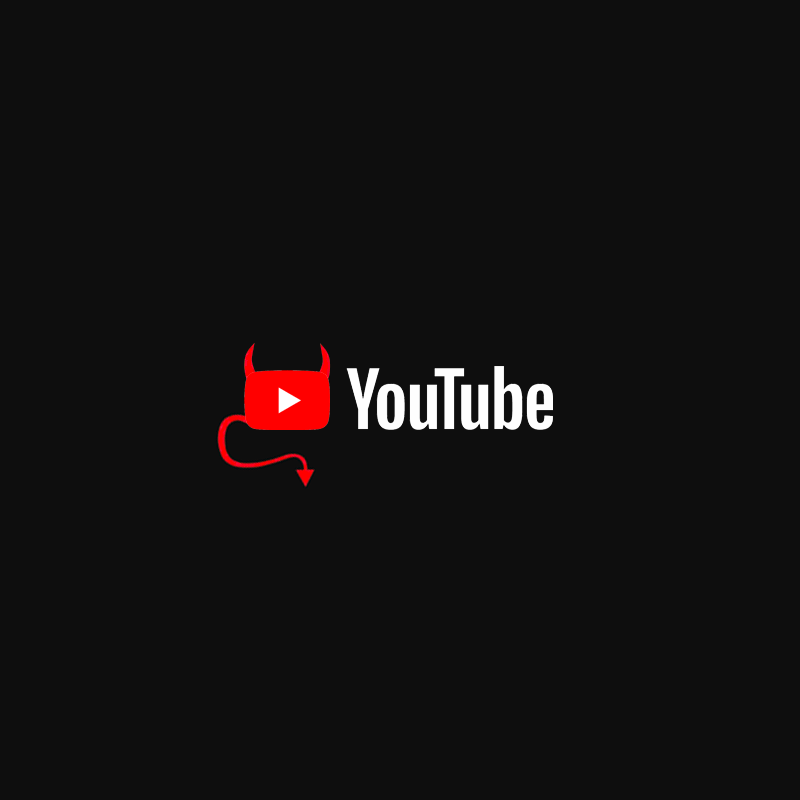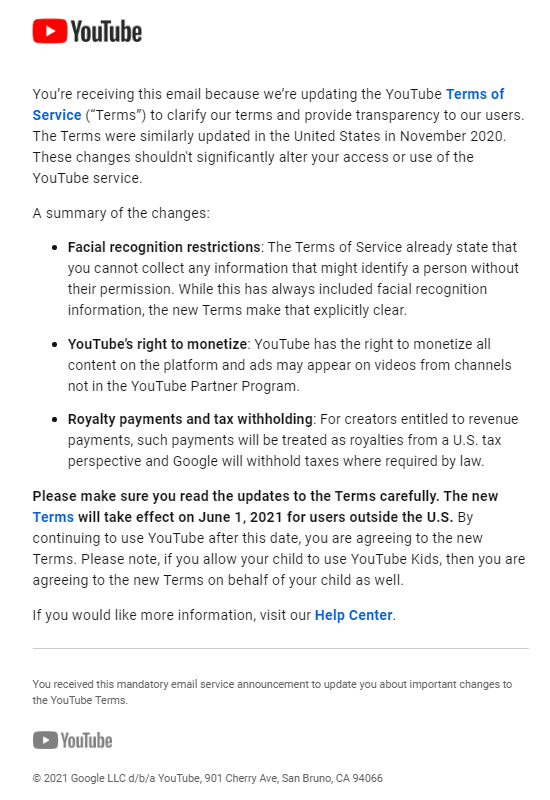
YouTube is the most popular video-streaming platform the web and mobile have ever seen. And when a policy change is happening, the internet should start noticing.
It's during the 'COVID-19' coronavirus pandemic that YouTube experiences a massive growth. As more people are stuck at home, the pandemic that plagued the world forced people to spend most of the 2020 at home, behind closed doors, and away from the public.
As a result, viewership increased dramatically.
Google as the owner of YouTube, wants to change things a bit, particularly about monetization.
After all, Google is a company that conducts business for profit, and the company wants to benefit from this increase of usage.
To do this, the company is making some adjustments to its Terms of Service.
Read: Facebook, Netflix And YouTube Struggle To Keep Up With The Coronavirus Pandemic 'Side Effects'
First of, YouTube said things about facial recognition inside videos.
YouTube deals with a staggering amount of videos, and inside the many videos, there are lots of people who got filmed without their consent. Those people may be bystanders or just some people who just caught by the camera, and got recorded by uploaders.
YouTube has long stated that people cannot collect any information that might identify a person without their permission.
"While this has always included facial recognition information, the new Terms make that explicitly clear," said YouTube in an email it sent to all YouTube users.
Second, YouTube is changing the way it shows ads.
To content creators, this can be annoying.
Prior to this, YouTube's ad placements were possible under YPP (YouTube Partner Program).
It's through this YPP that content creators who have met specific thresholds of subscriber count and views to their channels, can start allowing Google to show ads on their videos, and share the revenue.
This is changing, because Google wants YouTube to have the "right to monetize."
In the email, YouTube said that it has the very rights to "monetize all content on the platform and ads may appear on videos from channels not in the YouTube Partner Program."
Another way of saying this, YouTube is revising its policies so it can place more ads on any content of its choice, and not just those channels that come under YPP.
And if the uploader of the video is not yet eligible for YPP, earnings from the ads that are shown on the channel will go straight to Google. With he update, the video streaming giant won't be sharing any of the revenue it makes from such advertisements with the creators on whose content the ads are hosted.

"You grant to YouTube the right to monetize your content on the service (and such monetization may include displaying ads on or within content or charging users a fee for access). This agreement does not entitle you to any payments," reads YouTube's updated Terms of Service.
And third, while those who are already enlisted in YPP and turned on ads on their videos, earning will be shared like usual, but their payments shall be "treated as royalties from a U.S. tax perspective and Google will withhold taxes where required by law."
"Starting June 1, 2021, any payments you may be entitled to receive from YouTube under any other agreement between you and YouTube (including for example payments under the YouTube Partner Program, Channel memberships or Super Chat) will be treated as royalties. If required by law, Google will withhold taxes from such payments," said YouTube.
What this means, the policy could affect earnings of YouTubers who have viewers in the U.S., as those creators who earn from YouTube need to furnish their tax information by submitting it in Google's AdSense portal at the earliest.
In case the tax information is not submitted by May 31, Google may be required to subtract up to 24% of the creators' total earnings as tax, the company stated.
"The new Terms will take effect on June 1, 2021 for users outside the U.S. By continuing to use YouTube after this date, you are agreeing to the new Terms," closed YouTube.
Related: Smaller Channels Can Show Ads Without YouTube‘s Partner Program, With A Catch